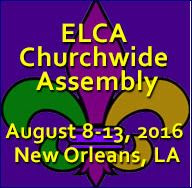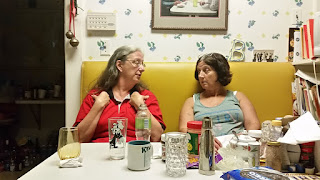
Westminster Eagle May 12, 2009: Crunching numbers, and
historic perspective, in Westminster election
August 18, 2016 / KED
In recent memory, several folks have called to my attention
an article I wrote after the 2009 Westminster elections.
From what I gather, there is already some interest in the
Westminster municipal elections in May 2017?
After several inquiries, a friend referred to the article
and sent me a link. Interestingly enough, in spite of all the changes in the
last several years with the Baltimore Sun and Carroll County Times websites,
the article is still on the web, for now at least. It may be found here:
http://archives.explorecarroll.com/news/2896/utz%20analysis/
Please click on the article and read it on the Baltimore Sun’s
website here:
http://archives.explorecarroll.com/news/2896/utz%20analysis/.
Maybe if some of these older articles get enough clicks and reads, it will
encourage the Carroll County Times and the Baltimore Sun to keep more of the
older stories on the web.
Meanwhile, I have been through this exercise so often in the
last 12-years that I began putting the well-read articles on Soundtrack, in the
hopes that even if the newspapers drop the stories off the web; the stories
will remain available…. Just saying
++++++++++++++++++++++
Crunching numbers, and historic perspective, in Westminster
election
News Analysis
The Westminster city elections held on Monday marked 190
years of Westminster city government. The first elections in Westminster were
the first Monday in April 1819.
In this past Monday’s election Kevin Utz, a Westminster
Common Council member first elected in 2005, was chosen by the voters to serve
a four-year term in the mayor’s office.
Utz, who previously served as the Westminster legislative
body’s chair of the Public Safety Committee, is a retired Maryland state
trooper and a former chief of the Westminster Fire Department.
He edged out councilwoman Suzanne Albert,
great-granddaughter of former Westminster mayor David E. Walsh (May 20,
1912-May 15, 1916) by 32 votes; garnering 248 votes compared to Albert’s 216.
In 2005, when he ran for his first council seat, Utz got the
nod from 505 voters.
Albert, the second woman in Westminster history to hold
elected office, was first elected in 1995. Westminster voters returned her to a
seat on the council every four years ever since. Albert followed Rebekah
Orenstein, a council member from 1991 to 1995.
The first woman known to have run for a seat on the Common
Council was Mary Elizabeth Speicher, who gathered 275 votes in the 1967
election, which were only 28 votes short of winning one of the three council
seats up for grabs that year.
Rounding out the field yesterday were former Westminster
council president Ken Hornberger with 165 votes, just ahead of Dennis Frazier’s
156.
Hornberger, husband of the late former State Sen. Sharon
Hornberger, served two terms previously as a Common Council member, 1983 to
1991, several of those years as the
council president. In the 1983 election
he won 194 votes and in 1987, 301. Hornberger did not stand for election in
1991.
Frazier is also no stranger to running for office. He ran
unsuccessfully for council in 1993, with 305 votes, and in 1991 when he
received 585 votes, for a fourth place finish in an election in which 1,224
voters turned out at the polls.
A total of 755 people voted in Monday’s election. The
current population of Westminster is over 17,000 with over 7,000 registered
voters.
In only six Westminster elections in the last 45 years,
since 1964, have more citizens cast votes. The highest voter turnout in that
time was in 1991, with 1,224 votes cast; the lowest was in 1965 with saw only
126 voters show up at the polls. The population of Westminster in 1964 was
approximately 6,500.
From 1964 to today, Westminster has held 25 elections. The
average turnout is 616. The highest vote getter since 1964 was former mayor Ken
Yowan, who hauled-in 887 votes in a particularly contested election in 1991.
Compare that to 100 years ago, in the contentious 1895
election, in which the hot button issue was whether to light the streets with
electricity or gas. Then, 589 citizens
voted in that election, out of a population of approximately 3,000
citizens.
That was 40 more voters than the 1890 election in which
another difficult issue brought out the voters over the question as to whether
or not the city ought to issue $25,000 in bonds to fix the city streets.
The main issue in this year’s election was securing adequate
supplies of drinking water for the city’s almost 34,000 water users, inside and
outside of the city limits.
After the results were announced Monday evening, mayor-elect
Utz said the water issues will be the first matter that he will tackle after he
is sworn into office at the biennial Common Council organizational meeting next
Monday night.
Utz remarked, after pausing for a moment, that his election
victory “hasn’t quite sunk in yet. We’ve got lots of work to do and I’m ready
to get started.”
Utz was full of praise for his opponents. He said that he
looks forward to working with councilwoman Albert, who retains her seat on the
council. “I fully intend to use every
resource available… A great idea is a great idea wherever or from whomever it
comes from… I want to thank and congratulate everyone who ran and I appreciate
their willingness to serve.”
In the Common Council, two seats were open in the election,
with the top two vote getters securing seats. Serving for the next four years
on the Common Council will be council seat winners Damian Halstad and Tony
Chiavacci.
In a field of six candidates for a seat on the council;
Halstad, a former council president, was top vote getter Monday with 512 votes
compared to Chiavacci’s 478. Following in the distance were William Gill and
Darcel Harris, tied with 130 votes, Eleanor DeMario, 105, and William Hughes
with 58.
Halstad previously served on the Common Council from 1993 to
2005. From 1999 to 2005 he served as the
council president. In his first election, the then-31 year-old newcomer to
Westminster politics garnered 597 votes. Since 1964, only 10 contenders for office
have won more votes than Halstad out of over 140 candidates.
Halstad remarked after the council meeting Monday night that
he was grateful to the citizens of Westminster for their vote of confidence.
Tony Chiavacci may be a young newcomer to Westminster
politics, but he comes from a family used to the challenges of elected
office. He is the son of outgoing
council president Roy Chiavacci.
Although there are examples of the children of elected
officials serving in office years later; more research is needed to determine
if there has ever been a son of a former elected official to follow immediately
in the parent’s footsteps.
It is also interesting to note that Tony Chiavacci lives in
the home that was once occupied by another elected official, Russell Sellman,
who owned the home from 1959 to 1973.
During those years Sellman served on the Common Council from 1961 to
1971 — seven of those years as the council president.
Tony Chiavacci said that he was “honored the citizens would
come out and vote for Damian — and with such a mandate,” in a reference to his
large victory margin over the next runner-up on the contest. “I’m humbled and anxious to get started.”
The writer, Kevin Dayhoff, is a history columnist for The
Eagle newspapers. He served as mayor of the city of Westminster from 2001 to
2005, following the footsteps of his father-in-law, Dave S. Babylon Jr., who
served on the Westminster Common Council from 1964 to 1987 – for many of those
years as council president; as did his grandfather Frank Thomas Babylon for
several years in the 1890s.











































